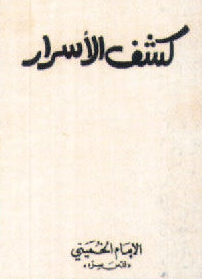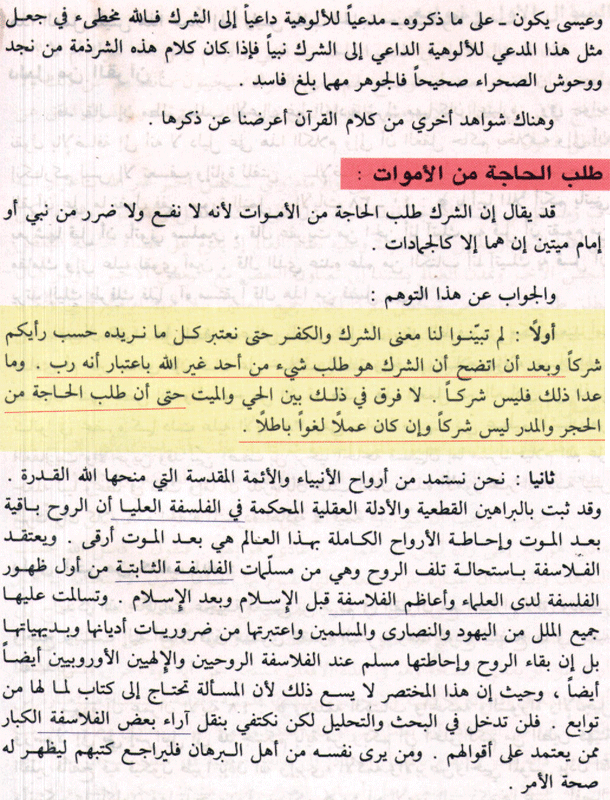Seeking aid from the living or the dead in that in which they have no power or capability is a clear instance of shirk (polytheism, assocation of partners with Allaah in worship), the greatest of all sins. The books of the Shia are full of this and it resembles the way of the extreme Sufis. The Shia and Sufis have a historical connection with each other and grave worship entered the Sufis through the Shia.
Seeking Aid From the Dead and From Stones and Mud is Not Shirk
Al-Khomeini writes in Kashf al-Asrar, in response to the objection, "It can be said that Shirk is to request a need from the dead because there is not benefit or harm (that can arise) from a dead prophet or imaam, because they are but like inanimate (lifeless) things" the following:
"And the answer to this presumption: First: You did not explain to us the meaning of shirk and kufr such that we can consider everything we desire to be shirk according to your opinion. And after it has become clear that shirk is to seek something from someone besides Allaah upon the consideration that that (other person or thing) is a Lord (rabb). But whatever is besides that is not shirk. There is no difference in that between the living and the dead, until even if you seek need from a stone or mud (in the ground), it is not shirk, even though it is a vain and false action."
This justification here is the very same as the one used by Sufis who claim that directing worship to others besides Allaah, from the loftiest and greatest of them, supplication (du'a) and seeking rescue (istighaathah) and the likes, is not shirk, until and unless the person believes in Ruboobiyyah for the one that he is invoking. And this is opposed to the understanding of Shirk one gains from the Qur'an at even just a cursory glance.



ليست هناك تعليقات:
إرسال تعليق